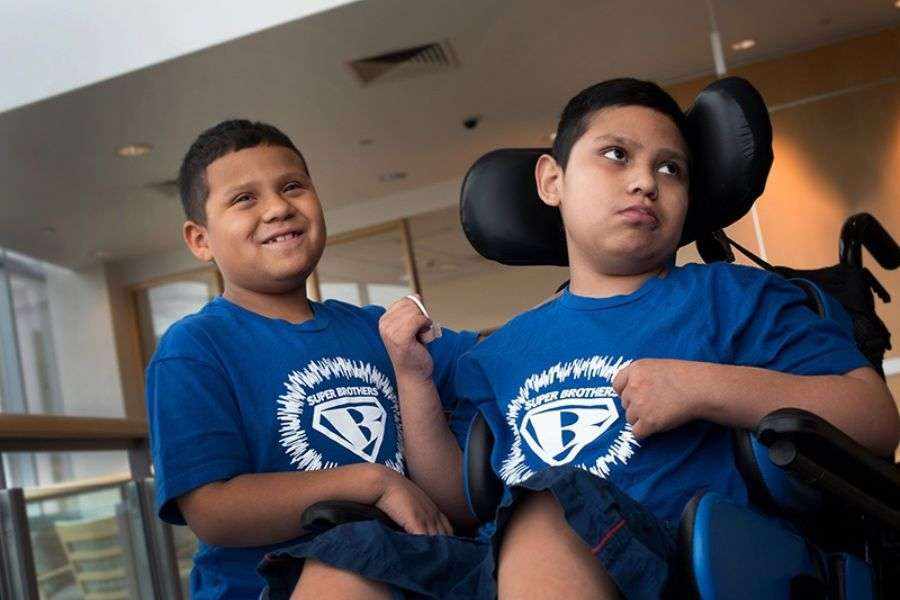Adrenoleukodystrophy
Overview

Adrenoleukodystrophy (ALD) is a hereditary condition that damages the myelin sheath, the membrane insulating nerve cells in the brain.
In ALD, the body struggles to break down very long-chain fatty acids (VLCFAs), causing their accumulation in the brain, nervous system, and adrenal gland. The most common type, X-linked ALD, results from a genetic defect on the X chromosome, affecting males more severely.
Childhood-onset ALD, occurring between ages 4 and 10, leads to progressive leukodystrophy, potentially causing death within five to 10 years if not diagnosed early.
Symptoms
• Childhood Cerebral ALD: Initially symptom-free but rapidly progresses, leading to behavioral changes, decline in academic performance, seizures, swallowing and speech difficulties.
• Can result in hyperactivity or psychiatric symptoms, contributing to cognitive and motor function deterioration.
• Adrenomyeloneuropathy (AMN): Typically manifests in adolescence or adulthood with gradual leg weakness, stiffness, coordination problems, and bladder/bowel dysfunction.
• Symptoms include weakness, fatigue, weight loss, low blood pressure, salt cravings, and skin darkening, especially in areas of friction or pressure.
• Adrenomyeloneuropathy (AMN): May involve sexual dysfunction and peripheral neuropathy, characterized by numbness, tingling, or pain in extremities.
• Can lead to muscle weakness, fatigue, and weight loss due to hormonal imbalances.
Causes & Risks
• Genetic Mutation: Inherited in an X-linked pattern. Males with a mutated ABCD1 gene are likely to develop ALD. Females, carrying one normal and one mutated gene, show varying symptoms or can be asymptomatic carriers.
• Risk Factors: Family history is the primary risk. Genetic counseling and testing determine the risk of passing the mutation.
• Gender-Related Risk: Males are more likely to develop symptoms. Females may experience symptoms like AMN or Addison's disease.
• Variable Expression: Symptoms' severity varies within families. Specific ABCD1 gene mutations and unknown genetic or environmental factors contribute.
• Other Factors: Environmental triggers may influence progression. These factors are not well-defined or fully understood.
Test & Diagnosis
• Symptom Review and History: Doctor assesses symptoms and reviews medical and family history.
• Physical Examination - Thorough physical examination is conducted.
• Blood Testing: High VLCFA levels in blood indicate ALD. Genetic testing identifies mutations causing ALD. Evaluates adrenal gland function.
• MRI Imaging: Detailed brain images detect abnormalities. Different MRI types provide comprehensive views, aiding in early leukodystrophy detection.
• Vision Screening: Monitors disease progression in asymptomatic males. Skin Biopsy and Fibroblast Cell Culture: Checks for increased VLCFA levels using a small skin sample in some cases.
Treatment
• Treatment Strategies: Lorenzo's Oil: Mixture of oleic and erucic acids. Aims to reduce very-long-chain fatty acid (VLCFA) levels. Primarily used preventively or in early treatment, but effectiveness is debated.
• Hematopoietic Stem Cell Transplant (HSCT): Considered for early-stage cerebral ALD or identified through newborn screening. Replaces defective cells with donor stem cells to halt disease progression. Success depends on disease stage and donor compatibility.
• Symptomatic Treatments: Focuses on managing symptoms and complications. Includes corticosteroid replacement therapy, physical therapy, speech therapy, and seizure control.
• Dietary Modifications: Recommends limiting VLCFA intake in some cases. Effectiveness in managing ALD is limited.
• Monitoring and Supportive Care: Regular monitoring by specialists (neurologists, endocrinologists). Supportive care and interventions enhance quality of life for individuals with ALD.
Living With
Living with Adrenoleukodystrophy (ALD) poses diverse challenges for patients and families.
Experience varies based on disease type, progression, and symptoms. Managing symptoms entails medication, therapy, and lifestyle changes.
Continuous medical monitoring involves check-ups, tests, and imaging to track progression and manage complications. Treatments like Lorenzo's Oil and HSCT aim to slow progression and alleviate symptoms. Coping strategies include seeking support, counseling, and adapting to changes. Education and workplace adjustments may be necessary.
Families benefit from genetic counseling. Despite challenges, individuals can lead fulfilling lives with proper care, social engagement, and focus on well-being. ALD demands a multidisciplinary approach for effective management and improved quality of life.
Complications
Adrenoleukodystrophy (ALD) presents various complications arising from its progressive impact on the nervous system, adrenal glands, and other organs:
• Neurological deficits: ALD causes progressive damage to the brain's white matter, leading to impaired motor function, vision loss, coordination difficulties, muscle weakness, speech and hearing impairments, and cognitive decline.
• Adrenal insufficiency: The disease affects adrenal glands, causing insufficient hormone production and symptoms like fatigue, weakness, dizziness, weight loss, low blood pressure, and abdominal pain.
• Mobility issues: Progressive neurological damage results in gait disturbances, muscle stiffness, spasticity, and potential loss of ambulation.
• Vision and hearing problems: ALD can cause vision and hearing impairments.

The Content is not intended to be a substitute for professional medical advice, diagnosis, or treatment. Always seek the advice of your physician or other qualified health provider with any questions you may have regarding a medical condition.
Know more about
Our Healthcare Planner
Personal Health Planner at BNC is a support staff who listens to your concerns and connects you with a Neuro Care provider. They prioritize your needs and create a trusting relationship between you and the provider.
Three fundamental values we can assure you:
1. Personalized Healthcare.
2. Most advanced robotic therapies
3. Transparent pricing





